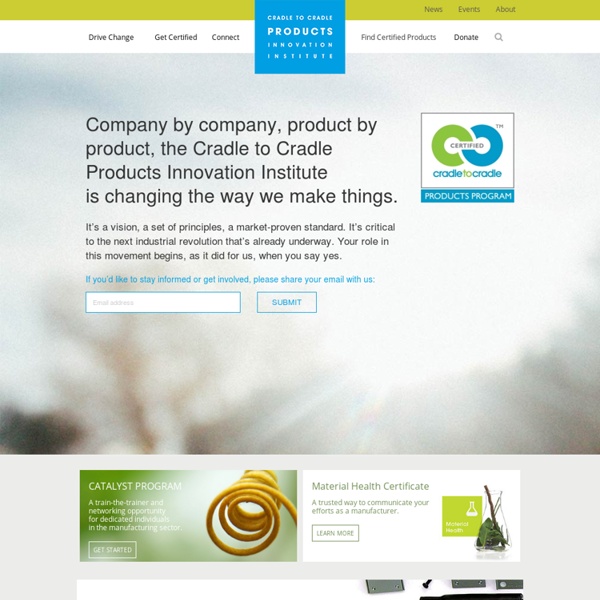Un bâtiment tertiaire à énergie positive qui tient ses promesses - Innovation chantiers
Photo n° 1/5 © DR Façade Green Office Meudon Les façades de cet immeuble de six étages sont vitrées à 40 % et équipées de ventelles permettant la ventilation nocturne du bâtiment. Photo n° 1/5 - © DR Photos 5/5 Green Office Meudon
Ceres
OSH Basics - Cradle to Grave - The Life and Times of Hazardous Waste (Part1)
August 28 , 2002 Cradle to Grave -The Life and Times of Hazardous Waste (Part 1) By Sean M. Alvarez, CSP
Smart building : easier and greener!
“Pensez au Smart building et pas seulement au Green building !” Fin de l’année 2012, le bâtiment Solarwind sortait de terre dans l’écoParc de Windhof. L’écoParc a été repensé par les membres fondateurs du GIE dont Progroup.
SRI Lab
SGS Colombia - Certificación orgánica - Agricultura y alimentos
Nuestro programa de certificación orgánica, que es rápido y eficiente, les permite a ustedes dar respuesta al aumento de concienciación del público sobre cuestiones de sostenibilidad e impulsar la protección de los recursos naturales y la biodiversidad. Este programa les proporciona una herramienta eficaz de entradaen el mercado, para los principales mercados de productos ecológicos del mundo. Además, nuestro servicio independiente de certificación de productos orgánicos aborda preocupaciones acerca de: Organismos Genéticamente Modificados (OGM) Productos químicos nocivos, tales como pesticidas y fertilizantes sintéticos Hormonas, antibióticos y medicamentos veterinarios en los alimentos para animales Donde quiera que ustedes se encuentren dentro de la cadena de suministro de alimentos, su organización puede aprovecharse de nuestros servicios disponibles de forma global y participar en este mercado en continuo crecimiento.
L’ECO-CONCEPTION ”C2C”
Le concept «cradle to cradle» imaginé par l”architecte américain William McDonough et Michael Braungart, chimiste allemand est un manifeste pour une philosophie radicalement différente de la pratique de l”écologie. Suivant les principes des 3R “”Réduire, Réutiliser, Recycler”, ce livre disponible depuis peu en français s”adresse aux éco-concepteurs, designers, ingénieurs et architectes soucieux de l’environnement. Comme William McDonough et Michael Braungart le soutiennent avec cet ouvrage datant de 2002 * et ré-actualisé dans sa version française en février 2011, cette approche visionnaire «du berceau au berceau», s”inscrit également dans la logique du rapport Brundtland définissant dès 1987, le «DD» : « Le développement durable est un développement qui répond aux besoins du présent sans compromettre la capacité des générations futures de répondre aux leurs ».
Artificial, naturalmente
En las clases de química elemental se estudian los hidrocarburos saturados: metano, etano, propano, butano, pentano, hexano... acabados en -ano. Y los no saturados con un doble enlace: eteno, propeno, buteno, acabados en -eno. Y los no saturados de triple enlace, etino, propino... acabados en -ino. Y a veces también se explica que el eteno se denomina comunmente etileno, y que el etino se llama también acetileno.
C2C: Cradle-to-Cradle « givingbackmore
A system of safety. A system of sustainability. A system of reusing, recycling, and renewing. This is the Cradle-to-Cradle system. Copyright Zhiying.lim 21 August 2012 This is an idea for industrial products which involves using materials from two different categories: Technical nutrients (which is limited to non-toxic/harmful materials that can be reused continuously without losing quality), and Biological nutrients (which can be disposed and decompose into soil).



